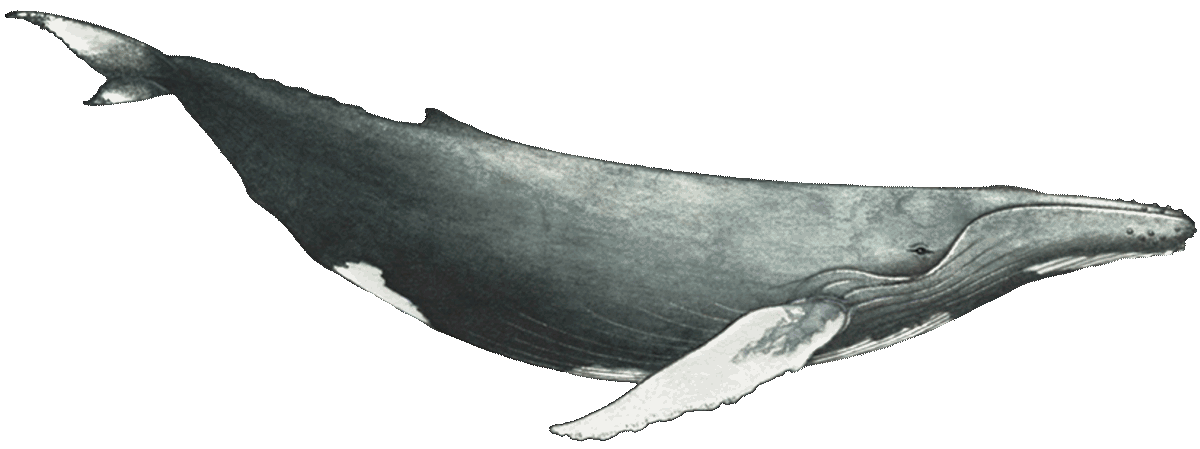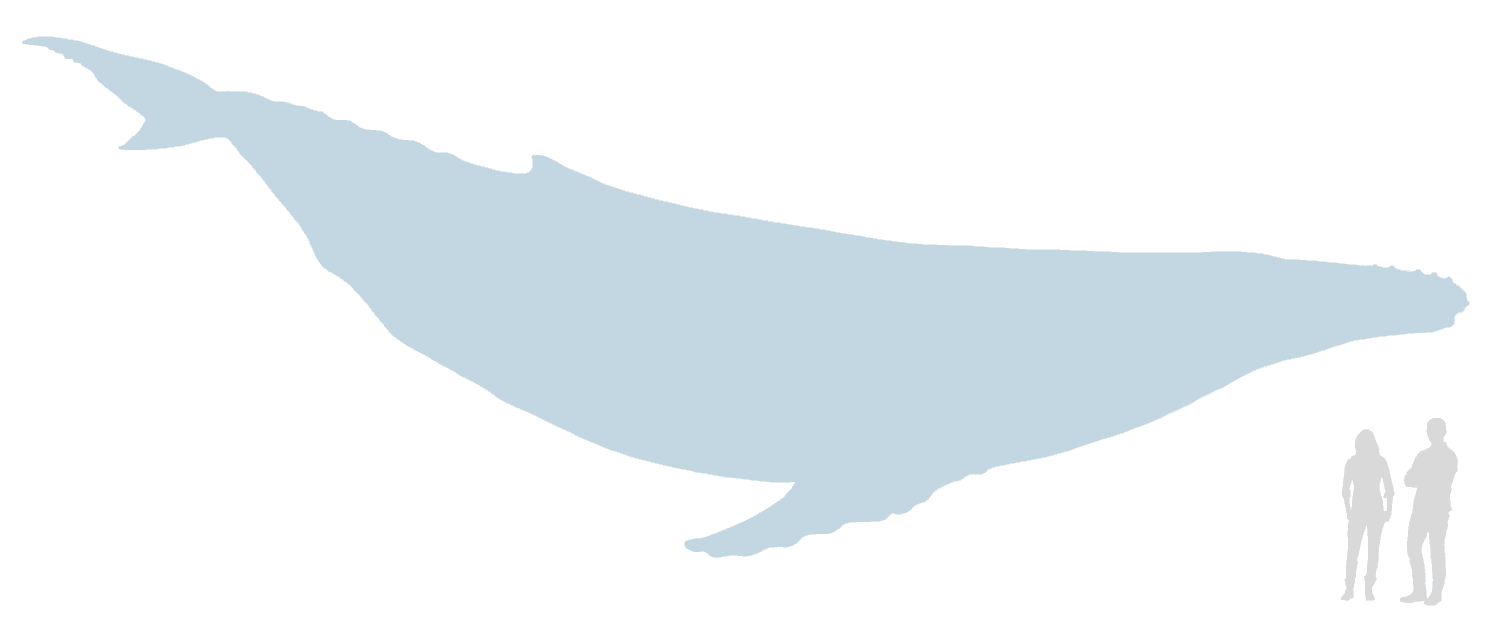
Humpback Whale
Megaptera novaeangliae
Scientific Classification
| Kingdom | Animalia |
|---|---|
| Phylum | Chordata |
| Class | Mammalia |
| Order | Cetartiodactyla |
| Suborder | Mysticeti |
| Family | Balaenopteridae |
| Genus | Megaptera |
| Species | novaeangliae |

Humpback whales are about 40-60 ft long (12 to 18 m) and can weigh up to 40 tons (36,000 kg)!
They have a lifespan of about 90 years!
Humpback whales feed on krill (tiny shrimp) and small fish. They migrate annually from summer feeding grounds near the poles to warmer winter breeding waters close to the Equator.
They are found in every ocean and all seas in the world.
Threats to Humpback Whales
Fishing & harvesting of aquatic resources, pollution, anthropogenic (human-created) noise, ship strikes, whaling
Current Population Trend Increasing
 |
Conservation Status The IUCN Red List tracks the conservation status of organisms around the world. Visit the Red List to learn more about the conservation status of humpback whales. |
OCS Research Insights
We have often observed mother and calf pairs swimming over the escarpment off Los Angeles.
Because they’re popular among whale-watchers and boat enthusiasts for their full-body breaches and other distinctive surface displays, we have often seen humpback whales being harassed!
We share our data with other researchers to track humpback whale migration and abundance off California.
Humpback Whale Facts
• Males produce long, complex and melodic songs which travel for great distances through the world’s oceans.
• Humpback whales travel up to 3,000 miles (5,000 kilometers) each year.
• Their pectoral fins can grow up to 16 feet long! (5 meters)
• One of their cooperative feeding methods is called “bubble net feeding” – several whales will blow curtains of air bubbles to encircle & concentrate prey.
SUPPORT CONSERVATION
Protect whales and dolphins now and for future generations
TAKE ACTION!
Here's how you can help
Learn Safe Observation
Learn how to safely observe whales, dolphins and other marine mammals - whether from a boat, surfboard or when kayaking or swimming.
Report Injuries or Harassment
Know who to contact if you encounter marine animals who are injured, in distress, or those being harassed by humans or boats.
Support Marine Research
OCS conducts one of the longest-running investigations on wild dolphins and whales existing worldwide. Learn more about research projects that help ensure the protection of these animals for generations to come.
Share Your Knowledge!
Ocean conservation starts with education. Share this page by copy/pasting its URL into your social media accounts to educate others about the magnificent marine mammals we share our planet with.
whale and dolphin species drawings © Massimo Demma / ICRAM / Muzzio
